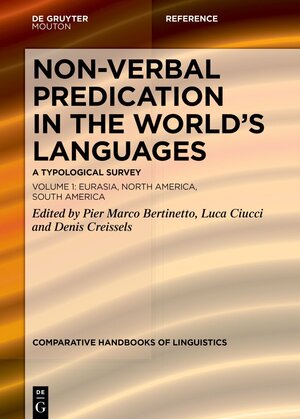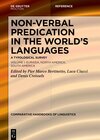
Non-verbal Predication in the World’s Languages
A Typological Survey Volume 1: Eurasia, North America, South America
herausgegeben von Pier Marco Bertinetto, Luca Ciucci und Denis CreisselsThe notion of predication is usually associated with the lexical class of verbs. However, the predicate function may also be expressed by Noun / Adjective / Adverb / Quantifier Phrases:
a. John is a doctor. b. The man is old. c. The boys are in the garden. d. Sam's friends are many.
Natural languages do, with respect to non-verbal predication, what they are expected to do in any compartment of grammar: they sharply diverge in their behavior.
This book offers a wide typological overview of how languages deal with non-verbal predication (henceforth: NVP). After the pioneering works by Hengeveld (1992) and Stassen (1997), no other work has attempted to provide a comprehensive overview of this pervasive syntactic phenomenon. Hence, the need for this book.
The introductory chapter highlights the main features to be considered:
- the lexical and morphosyntactic nature of the predicate.
- the morphological expression of NVP.
- the semantic types of NVP.
The bulk of the book consists of a collection of papers, written by well-known specialists, targeting different languages or language families, thus offering a rich array of typological data.
This book will be of interest to typologists, syntacticians of any theoretical creed, and students of linguistics at large.




